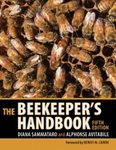By: Timothy D Paine(Editor), François Lieutier(Editor)
892 pages, 32 colour & 155 b/w photos and illustrations, tables
![Insects and Diseases of Mediterranean Forest Systems Insects and Diseases of Mediterranean Forest Systems]()
Click to have a closer look
About this book
Contents
Customer reviews
Biography
Related titles
About this book
Insect and disease issues are often specific to the Mediterranean forest systems rather than shared with the temperate forests. In addition to the specific native insects and diseases, the forests are subject to the invasion of exotic species. The forests are also at risk from high degrees of human activity, including changing patterns of forest fires, land management activities, intensive plantation forestry using introduced timber species from other Mediterranean climate zones, and atmospheric deposition. Combined with elements of global climate change that may disproportionately affect Mediterranean climate systems, this creates a number of significant management issues that are unique to the Mediterranean forests. It is our goal that the information contained in Insects and Diseases of Mediterranean Forest Systems will contribute to understanding the unique aspects of Mediterranean forest systems and to protecting these critical resources.
Contents
- Introduction
- Introduction to Mediterranean forest systems - Mediterranean Basin
- Defoliators in native insect systems of the Mediterranean basin
- Native fruit, cone and seed insects in the Mediterranean Basin
- Native sap-sucker insects in the Mediterranean Basin. - Bark beetles of Mediterranean conifers
- Native buprestid and longhorn beetles in the Mediterranean Basin
- Foliage feeding invasive insects: defoliators and gall makers
- Invasive fruit, cone and seed insects in the Mediterranean Basin
- Invasive sap-sucker insects in the Mediterranean Basin
- Alien wood-boring beetles in Mediterranean regions
- The pine wood nematode and its local vectors in the Mediterranean Basin
- Invasive Insects in the Mediterranean Forests of Chile
- Insects and diseases of Mediterranean forests: A South African perspective
- Native defoliators of Australian Mediterranean forest trees
- Native borers of Australian Mediterranean forest trees
- Invasive insects in Mediterranean forest systems: Australia
- Native Bark Beetles and Wood Borers in Mediterranean Forests of California
- Native Diseases of California Mediterranean Forest Angiosperms
- Diseases of Conifers in California
- Invasive Bark and Ambrosia Beetles in California Mediterranean Forest Systems
- Goldspotted oak borer in California: Invasion history, biology, impact, management, and implications for Mediterranean forests worldwide
- Pitch canker in California Mediterranean Conifer Systems
- Insects Colonizing Eucalypts in California
- Sudden Oak Death in California
- Polyphagous Shot Hole Borer and Fusarium Dieback in California
- Air Pollution
- Responses of Mediterranean forest phytophagous insects to climate change
- FOLLOW THE WATER: Extreme Drought and the Conifer Forest Pandemic of 2002-03 Along the California Borderland
- General conclusions
Customer Reviews
Biography
Dr. Timothy Paine has written over 200 refereed journal publications, book chapters, proceedings, technical papers, and edited two books. Since becoming an ESA member in 1975, he has received many honors from ESA including the Recognition Award in Urban Entomology (1999), the Distinguished Achievement Award in Horticultural Entomology (2009), and has served as President of the Pacific Branch (1999-2000). He also became a Fellow of the American Association for the Advancement of Science in 2005. Dr. Paine's research focus is to improve pest management through a better understanding of the biology, ecology, and physiology of herbivorous insects and their interactions with host plants, competitors, and natural enemies. Research projects include the management and control of two exotic cerambycid wood borers, a leaf-feeding weevil, three lerp-forming psyllids on eucalyptus, ash whitefly, and pine bark beetles, which are all devastating insect pests of urban forests. In addition, Dr. Paine's lab has done studies in landscape and nursery ecology in the key insect pests of woody plants. Dr. Paine's achievements go far beyond his research. His mentoring, teaching, and outreach efforts have set him apart as one of the preeminent entomologists in his field.
By: Timothy D Paine(Editor), François Lieutier(Editor)
892 pages, 32 colour & 155 b/w photos and illustrations, tables


































